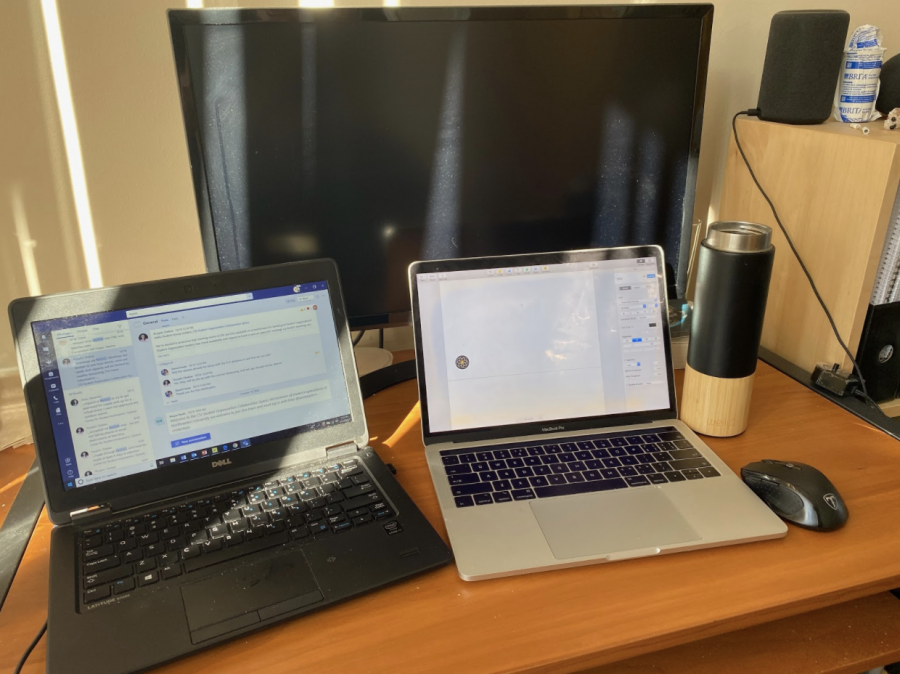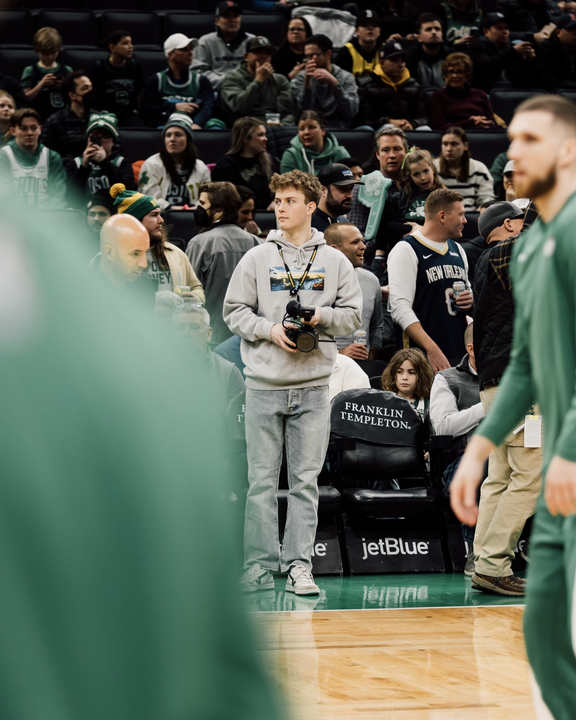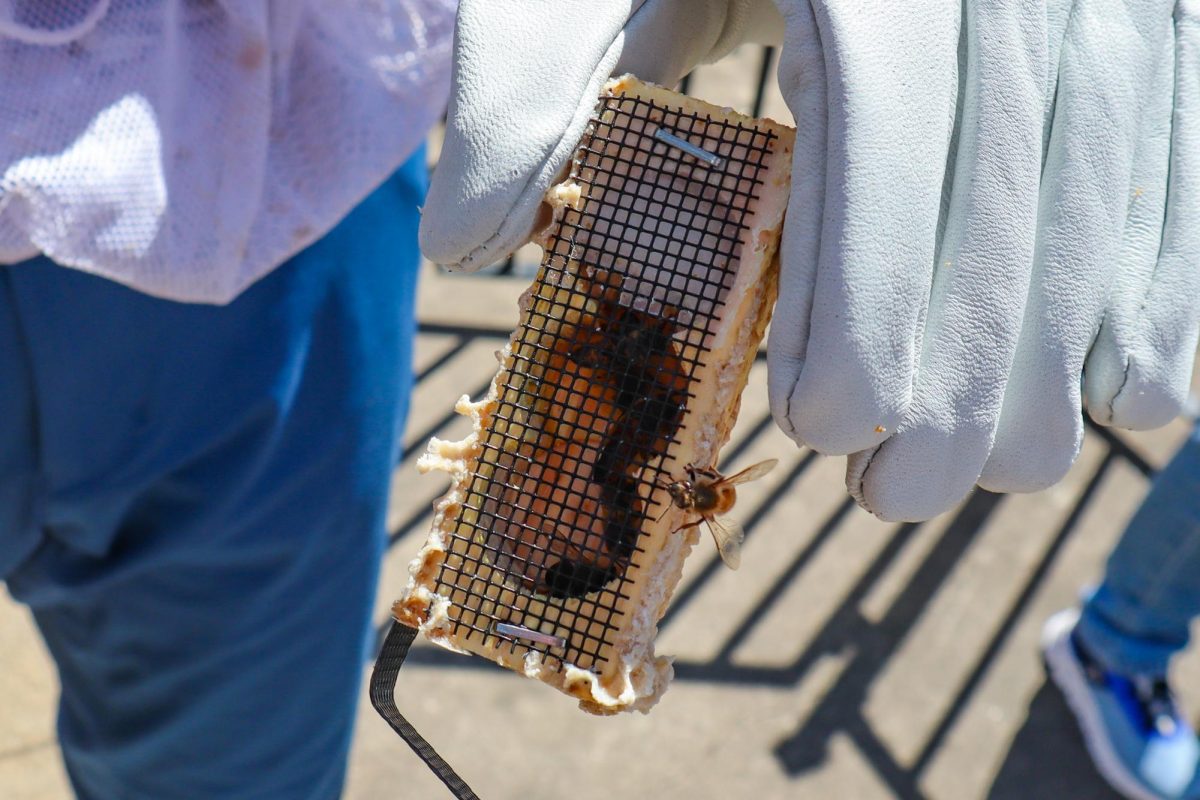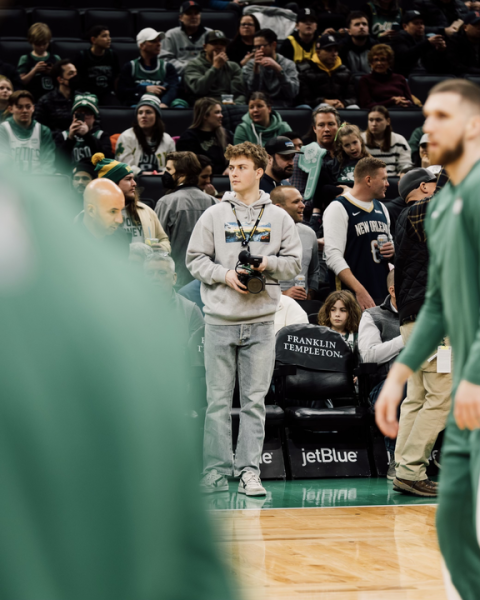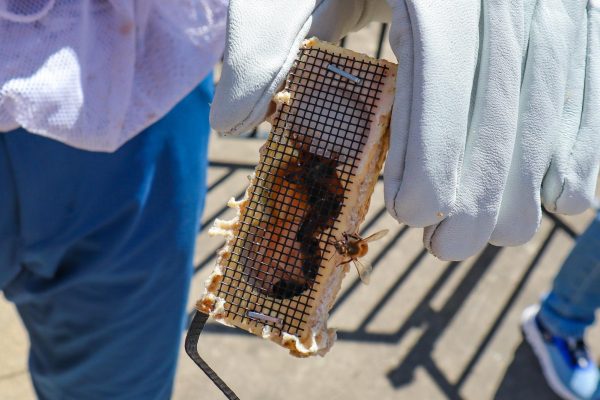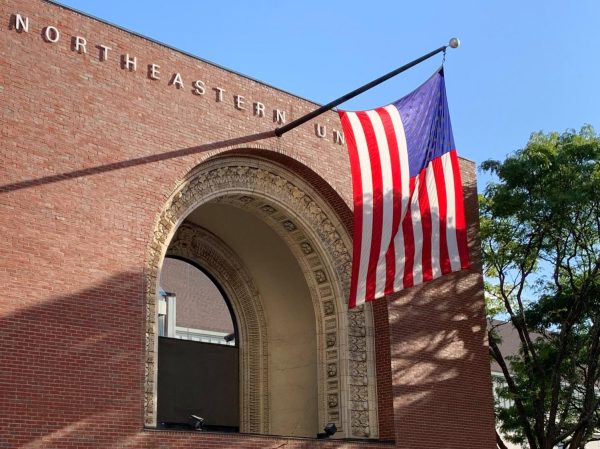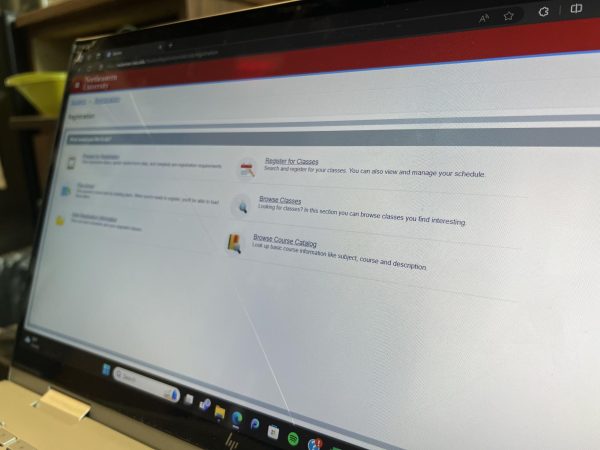Students adjust to remote co-ops, long for in-person work interactions
Third-year economics major Patric Song’s at-home workspace.
November 7, 2020
As Northeastern University continues to adhere to Center for Disease Control’s guidelines, this semester’s Professional Development for Co-op classes are being held completely online. Many of the co-op opportunities offered for next semester are remote as well, as professional industries continue to adapt to the COVID-19 pandemic.
Some companies that generally offer co-ops are not this semester, decreasing the number of available jobs and increasing competition between students in an already stressful environment. The negative economic impacts of the pandemic make it harder for college graduates to find work, let alone co-op students.
Students who planned on starting their co-op cycle this school year have had to grapple with the numerous effects of the pandemic, forcing them to assess the value of a remote internship process and job and the challenges that come with remote workspaces.
“I was going to take the [Professional Development for Co-op class], but I didn’t feel [that] I would learn as much from the class or get as much help needed with applications from it being online,” said Katherine Zotos, a second-year business administration major with a concentration in marketing analytics.
The new complexities of the online process have turned some students away, and others have been discouraged by hyper-competitive conditions that the limited job market brings.
“I felt the process would likely be much more competitive because the number of co-ops has decreased, “said Aidan Braun Freck, a second-year music industry major, who was planning on taking the class this semester but backed out. “But the amount of students going on co-ops seems relatively stable.”
Workplaces are embracing platforms like Zoom and Slack to communicate and virtually organize a workspace, but Northeastern students long for the daily, face-to-face interactions of a true co-op experience that can help form connections and build a career. Students say these are the kinds of interactions that remote workspaces do not provide.
“We have coffee hours in the morning before work starts for 15 minutes,” said Patric Song, a current co-op at the Northeastern University Center for Student Involvement and a third-year economics major who is working remotely in Rhode Island. “Everyone who is able to go shows up in a Zoom meeting, and we just catch up a little bit. That’s the only social aspect we have right now.”
The ability to get to know colleagues, network and gain hands-on experience is important to students, and remote work takes away most of those opportunities. That doesn’t necessarily mean, however, that the work isn’t worth doing.
“I do feel that [a remote co-op] would lessen the experience, as you would not be in an actual working environment,” Braun Freck said. “Though, the definition of ‘working environment’ is now subject to change.”
Song agreed, feeling that his co-op was still valuable in the remote setting.
“I definitely don’t [regret my decision to work remotely]. I do like my job, and I think I am getting a good experience out of it,” Song said. “It depends on what you are doing, but if you are okay with online classes, then you should be okay with online co-ops.”
But a remote co-op, being different from the experience that Northeastern has sold its students on, is not enough for some.
“The whole point of co-ops is to get real work experience which not only includes a work routine but also interaction with co-workers,” Zotos said. “Remote internships are not how regular jobs would function due to the lack of in-person communication and hands-on experience. I feel like remote co-ops will not give students the best experience to prepare them for real work interactions.”


